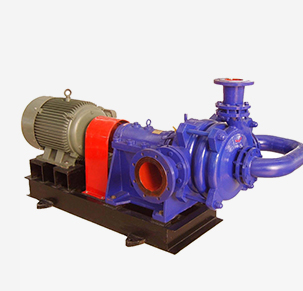English
- Afrikaans
- Albanian
- Amharic
- Arabic
- Armenian
- Azerbaijani
- Basque
- Belarusian
- Bengali
- Bosnian
- Bulgarian
- Catalan
- Cebuano
- Corsican
- Croatian
- Czech
- Danish
- Dutch
- English
- Esperanto
- Estonian
- Finnish
- French
- Frisian
- Galician
- Georgian
- German
- Greek
- Gujarati
- Haitian Creole
- hausa
- hawaiian
- Hebrew
- Hindi
- Miao
- Hungarian
- Icelandic
- igbo
- Indonesian
- irish
- Italian
- Japanese
- Javanese
- Kannada
- kazakh
- Khmer
- Rwandese
- Korean
- Kurdish
- Kyrgyz
- Lao
- Latin
- Latvian
- Lithuanian
- Luxembourgish
- Macedonian
- Malgashi
- Malay
- Malayalam
- Maltese
- Maori
- Marathi
- Mongolian
- Myanmar
- Nepali
- Norwegian
- Norwegian
- Occitan
- Pashto
- Persian
- Polish
- Portuguese
- Punjabi
- Romanian
- Russian
- Samoan
- Scottish Gaelic
- Serbian
- Sesotho
- Shona
- Sindhi
- Sinhala
- Slovak
- Slovenian
- Somali
- Spanish
- Sundanese
- Swahili
- Swedish
- Tagalog
- Tajik
- Tamil
- Tatar
- Telugu
- Thai
- Turkish
- Turkmen
- Ukrainian
- Urdu
- Uighur
- Uzbek
- Vietnamese
- Welsh
- Bantu
- Yiddish
- Yoruba
- Zulu
Telephone: +86 13120555503
Email: frank@cypump.com
Dec . 12, 2024 04:33 Back to list
pumps and pipeline services
Pumps and Pipeline Services A Vital Component of Modern Industry
In the dynamic landscape of modern industry, efficient fluid management systems are essential for ensuring smooth operations across various sectors, including oil and gas, water treatment, chemical manufacturing, and agriculture. Among the most critical infrastructures enabling these processes are pumps and pipeline services. This article explores the importance of these services, the types of pumps and pipelines, and the emerging trends in this vital field.
The Role of Pumps and Pipelines
Pumps and pipelines play an instrumental role in transporting liquids and gases from one location to another, thereby facilitating the effective functioning of multiple industrial processes. Pumps are mechanical devices that move fluids through a system by using mechanical action. They come in various types, including centrifugal pumps, positive displacement pumps, and submersible pumps, each suited for different applications based on flow rate, pressure requirements, and the nature of the fluid being transported.
Pipelines, on the other hand, are the conduits through which these fluids travel. They vary in size, material, and design, depending on the specific needs of the operation. The integration of reliable pumps and pipelines ensures that materials are delivered efficiently, reducing downtime and enhancing productivity.
Importance in Various Industries
1. Oil and Gas In the oil and gas sector, pumps and pipeline services are vital for transporting crude oil, natural gas, and refined products over long distances. The effective management of these systems is crucial for ensuring safety and minimizing environmental impacts during transportation.
2. Water Supply and Treatment In municipal water systems, pumps are used to pressurize water for distribution throughout communities, while pipelines transport wastewater for treatment. The reliability of these services is critical for public health and environmental protection.
3. Chemical Manufacturing The chemical industry relies on pumps to handle corrosive and hazardous materials. Specialized pumps and pipelines designed to withstand extreme conditions and prevent leaks are essential to maintain safety standards and operational efficiency.
pumps and pipeline services

4. Agriculture In agriculture, pumps are utilized for irrigation systems to ensure crops receive adequate water supply. Efficient pipeline services transport water from reservoirs to fields, promoting sustainable agricultural practices.
Innovative Trends and Technologies
The pumps and pipeline industry is continuously evolving, driven by technological advancements and the need for increased efficiency and sustainability. Some emerging trends include
- Automation and IoT The integration of automation and Internet of Things (IoT) technologies allows for real-time monitoring and control of pump and pipeline systems. This enhances operational efficiency and enables predictive maintenance, reducing the likelihood of costly breakdowns.
- Energy Efficiency There is a growing emphasis on energy-efficient pumps and systems. Advanced pump designs and smart technology can significantly reduce energy consumption, which not only lowers operational costs but also minimizes the carbon footprint.
- Smart Materials The utilization of smart materials in pipeline construction and repair can enhance durability and resistance to corrosion. These innovations contribute to longer-lasting infrastructure and reduce maintenance frequency.
- Sustainability The industry is also shifting towards more sustainable practices, including the use of biodegradable lubricants and the development of pumps designed for low-water applications, which are particularly important in arid regions and during droughts.
Conclusion
Pumps and pipeline services are indeed the backbone of various critical industries, enabling the efficient and safe movement of fluids essential for modern life. As technology continues to advance and environmental concerns become increasingly paramount, the future of pumps and pipelines will be shaped by innovation and a commitment to sustainability. Understanding and investing in these services will be key for industries looking to thrive in a competitive market while adhering to regulatory standards and environmental responsibility.
-
ISG Series Vertical Pipeline Pump - Chi Yuan Pumps Co., LTD.|Advanced Hydraulic Design&Energy-Efficient Solutions
NewsJul.30,2025
-
ISG Series Vertical Pipeline Pump - Chi Yuan Pumps Co., LTD.
NewsJul.30,2025
-
ISG Series Vertical Pipeline Pump - Chi Yuan Pumps Co., LTD.|energy-efficient fluid handling&industrial durability
NewsJul.30,2025
-
ISG Series Vertical Pipeline Pump - Chi Yuan Pumps | Advanced Engineering&Industrial Efficiency
NewsJul.30,2025
-
ISG Series Pipeline Pump - Chi Yuan Pumps | High Efficiency, Energy Saving
NewsJul.30,2025
-
ISG Series Vertical Pipeline Pump-Chi Yuan Pumps|High Efficiency&Reliable Performance
NewsJul.29,2025










